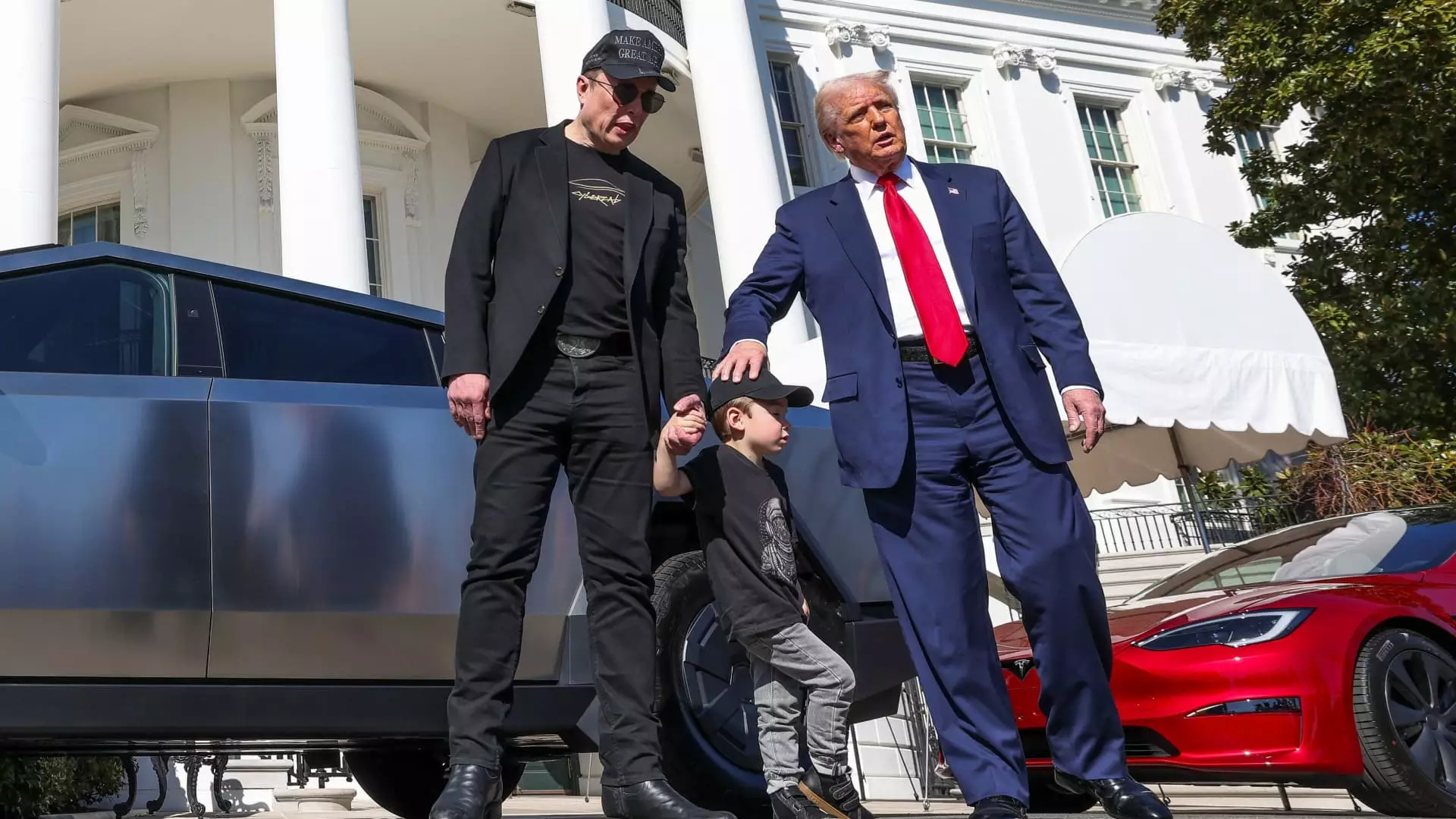In an era dominated by fluctuating trade policies and economic uncertainties, Elon Musk, the CEO of Tesla, has made his position clear on the matter of tariffs and their implications for the automotive industry. During a recent earnings call, Musk articulated a nuanced perspective on tariffs that reflects his understanding of both business operations and broader economic frameworks. While he emphasizes that fiscal decisions ultimately reside with government authorities, particularly the president, his comments illuminate critical concerns about fairness and competitiveness in global trade.
Localizing Supply Chains: Tesla’s Unique Position
One aspect that sets Tesla apart from other American automakers is its strategy of establishing localized supply chains. Musk remarked that, in comparison to its competitors, Tesla is “the least-affected car company” concerning tariffs, thanks to its diversified manufacturing bases spread across North America, Europe, and China. This position not only provides resilience against external shocks but also offers a glimpse into how strategic planning can mitigate the adverse effects of international trade policies. While other automakers may struggle under the pressure of increased tariffs, Musk’s approach showcases an innovative blueprint for staying competitive even amidst financial constraints.
The Financial Reality: A Mixed Bag for Tesla
Despite these strategic advantages, Tesla’s recent earnings report painted a less than favorable picture of the company’s financial health, revealing a staggering 20% decline in automotive revenue and a significant 71% drop in net income year-over-year. This decline raises pertinent questions about the long-term viability of the company, especially in the context of Musk’s assertions regarding tariffs. Investors may find themselves in a conundrum where tariffs’ effects overlap with internal financial challenges, leading to a volatile stock performance—already highlighted by a 36% plunge in stock prices in the first quarter.
Breach with Administration: A Candid Disagreement
Musk’s dynamic relationship with the Trump administration exemplifies the complexities of corporate advocacy. While he has been an influential voice within the administration, especially on technological innovation, his criticism of tariffs signifies a distance from some government policies. Calling Peter Navarro, the president’s chief trade advisor, a “moron,” underscores Musk’s willingness to challenge government rhetoric when it conflicts with his understanding of effective trade practices. This candor is refreshing in a landscape often painted by muted corporate voices that shy away from directly confronting governmental directives.
Advocacy for Free Trade
During the earnings call, Musk reiterated his advocacy for accessible market frameworks and predictable tariff structures. He pointed out that lower tariffs generally facilitate freer trade, benefitting consumers and businesses alike. His perspective promotes a more economically interconnected world that could foster innovation and competition. The idea that tariffs on specific industries could lead to retaliatory actions, creating a tit-for-tat environment, raises critical questions about economic policy’s long-term impact on global collaboration and technological advancement.
Future Challenges: Lithium Dependency and Supply Chain Flexibility
Despite Tesla’s progressive strategy, the reliance on materials from abroad, notably lithium iron phosphate batteries sourced from China, presents ongoing challenges. Musk acknowledged this dependency, highlighting that the company is striving for more localized battery cell production. While efforts are underway to mitigate reliance on foreign supply chains, the road ahead might require considerable investments and time. This situation illustrates not just the challenges faced by Tesla but also serves as a cautionary tale for many tech-driven industries that continue to depend on global supply chains.
The conversation surrounding tariffs is multifaceted, steeped in nuances that affect not only individual companies but the broader economy as well. Musk’s insights illuminate the need for balance between competitive practices and fair trade, emphasizing that the actions of one sector inevitably ripple across the marketplace. As the industry grapples with complex economic realities, Tesla serves as both a model of resilience and a reminder of the challenges that lie ahead in navigating the turbulent waters of global trade. The intersection of policy and innovation will undoubtedly define the future landscape for both Tesla and its competitors.

